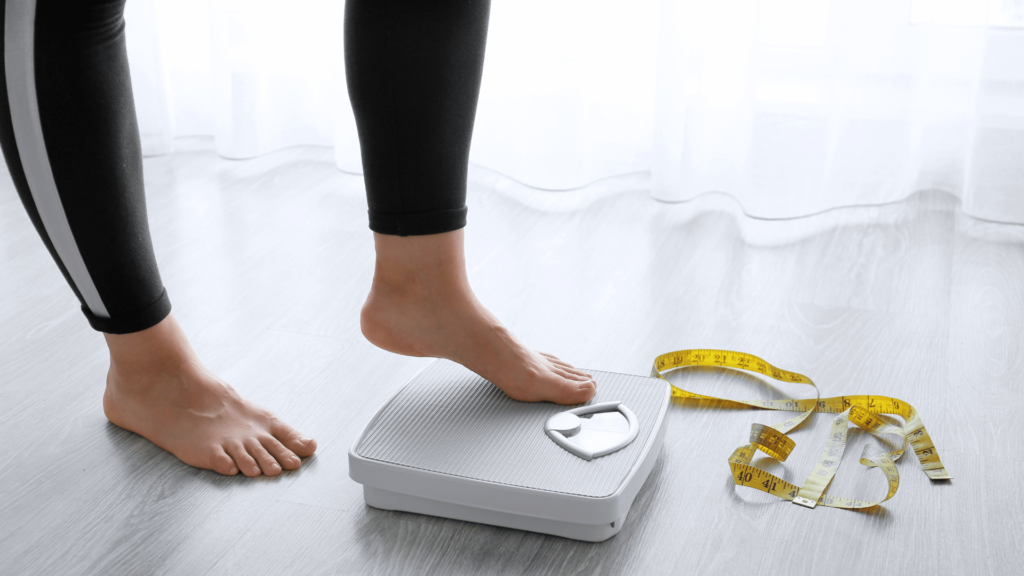Introduction
Weight loss drugs like Wegovy, Ozempic, and Mounjaro have become the talk of the town. They’re often dubbed “miracle drugs,” and honestly, the hype makes sense. Imagine losing up to 20% of your body weight—that’s a game-changer for anyone battling obesity. Plus, they come with a cherry on top: better heart health, reduced dementia risk, and even help curbing alcohol cravings. Sounds like a win-win, right?
But hold your horses—it’s not all rainbows and unicorns. These so-called “miracle” medications come with a side of complications. New research suggests they’re not just melting fat; they’re also chipping away at muscle and bone. Yep, we’re not just talking about “Ozempic face” or “Ozempic butt.” This goes deeper—literally. Let’s dig in and explore what this means for your health and how to safeguard your body while shedding pounds.

Why Are These Drugs So Popular?
Before we get into the tricky stuff, let’s take a step back and see why everyone’s raving about these meds.
How They Work: These drugs are GLP-1 receptor agonists, which basically means they mimic a hormone that tells your brain, “Hey, we’re full—stop eating!” They help regulate appetite and blood sugar, making it easier to eat less without feeling like you’re starving yourself.
The Benefits: The perks are undeniable:
- Significant weight loss: Reduces obesity-related risks like diabetes and heart disease.
- Improved metabolic health: Keeps your blood sugar in check.
- Heart and kidney benefits: Less stress on these vital organs.
- Cognitive boosts: Potentially lowers your risk of dementia.
- Behavior control: Early evidence suggests they may help tackle addictions.
Sounds like the perfect package, right? But—as every rom-com has taught us—there’s always a twist.
Also Read: Popular Vitamin Won’t Prevent Falls or Fractures in Older Adults
The Dark Side: Muscle and Bone Loss
Here’s where things get a little dicey. Studies show that these drugs don’t just torch fat; they also lead to the loss of muscle and bone, which is a big deal. Think about it: your body isn’t just shedding unwanted pounds; it’s also letting go of the stuff that keeps you strong and mobile.
What Does the Research Say?
- Muscle Loss: Up to 40% of the weight you lose on these drugs could be lean mass (muscle), according to studies in top medical journals.
- Bone Loss: Weight loss can slow down your body’s natural bone-rebuilding process, making bones weaker over time.

Why Is This a Problem?
- Less muscle means less strength, a slower metabolism, and poorer blood sugar control.
- Weaker bones increase your risk of fractures and falls—especially as you age.
Why Do These Drugs Affect Muscle and Bone?
It’s not just the drugs’ fault. Rapid weight loss, in general, can lead to muscle and bone loss. Your body gets a little overzealous and burns through whatever it can, including muscle and bone. However, these medications might accelerate the process because:
- Appetite suppression: You’re eating less, which often means fewer nutrients like protein, calcium, and vitamin D.
- Less physical activity: Quick weight loss can zap your energy, making you less likely to hit the gym.
How to Protect Your Muscle and Bone Health
The good news? You don’t have to choose between slimming down and staying strong. Here’s how to strike a healthy balance:
1. Load Up on Protein

Protein is your body’s best friend during weight loss. It helps preserve muscle and keeps your metabolism humming.
- Aim for: 1.2–1.6 grams of protein per kilogram of body weight daily. For a 70 kg (154 lb) person, that’s 84–112 grams.
- Top sources:
- Animal-based: Chicken, fish, eggs, yogurt.
- Plant-based: Lentils, tofu, nuts, seeds.
2. Exercise Smarter

Don’t just move—train with intention. Incorporate:
- Strength training: Think weightlifting or resistance bands.
- Weight-bearing exercises: Activities like walking or jogging to build bone density.
- Balance and flexibility workouts: Yoga or tai chi to reduce fall risks.
Also Read: 9 Essential Tips for Maintaining Kidney Health
3. Prioritize Bone Health

- Calcium: Aim for 1,000 mg/day (or 1,200 mg if you’re over 50). Get it from dairy, leafy greens, or fortified foods.
- Vitamin D: Shoot for 800–1,000 IU/day. Sunshine, fatty fish, and supplements are your go-to sources.
4. Track Your Progress

Stay informed about your body’s changes:
- Get regular body composition scans (DEXA) to track muscle and bone health.
- Have your doctor check your nutrient levels.
5. Team Up with an Expert
Work with a healthcare provider or a dietitian to tailor your weight-loss journey and avoid pitfalls.
Conclusion
Weight loss drugs can be a game-changer—but they’re not a free pass to skip the essentials. Think of your body as a house. These meds might be fixing the roof, but you’ve got to make sure the walls (your muscle and bone) stay standing.
So, stock up on protein, dust off your weights, and stay vigilant with regular check-ups. Your future self—walking strong and standing tall—will thank you.




